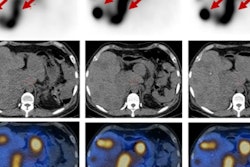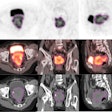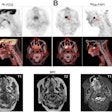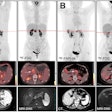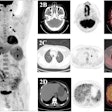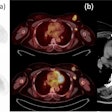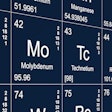The use of peptide receptor radionuclide therapy (PRRT) to treat malignant neuroendocrine tumors can help patients achieve and maintain a high quality of life, according to a study published in the April issue of the Journal of Nuclear Medicine.
Previous research has estimated the overall response rate for PRRT is between 70% and 80% for the two most commonly used radiopharmaceuticals: yttrium-90 (Y-90) DOTATOC for larger tumors and lutetium-177 (Lu-177) DOTATATE for smaller tumors. Patients who do respond favorably to PRRT have a median time to disease progression of three to four years.
For this 12-year retrospective study, the researchers included 27 men and 17 women with advanced tumors and enhanced somatostatin receptor expression. Their mean age at initial diagnosis was 60 years (range, 40 to 84 years). Median follow-up time was 80 months. The mean number of Lu-177 PRRT cycles was 5.3 (± 2.5), while the mean number of Y-90 PRRT cycles was 5.5 (± 2.6) (JNM, April 2019, Vol. 60:4, pp. 524-529).
While the median overall survival was 79 months, 14 patients (32%) were still alive more than 12 years after starting PRRT. None of the patients who were alive at the end of the observation period were dialysis-dependent. On the downside, patients whose disease progressed soon after PRRT had a poor prognosis.




